Aaron Rodgers' Contract Extension Could Continue Trend of Player Empowerment
NFL players may finally be taking cues from other leagues when it comes to contract negotiations.
By mkelley
 The NFL has been far behind the other major North American sports leagues in terms of player empowerment, but it appears that the efficacy of NFL player is trending upward.
The NFL has been far behind the other major North American sports leagues in terms of player empowerment, but it appears that the efficacy of NFL player is trending upward.
Despite being by far the most popular sports league on the continent, the NFL and all of its success have benefitted the owners and the league office more than the players on the field, due to a series of failures by the NFLPA in labor negotiations. For example, the NFL remains the only league of the big four without guaranteed player contracts.
Some fans simply refuse to listen to such matters, pointing only to high salaries, and perhaps it may be greedy to ask for much more. But the bottom line remains that athletes in the other leagues have done a far better job protecting their interests, financial and otherwise.
The NFL has a culture that marginalizes the individual, and while it is part of what makes the game special, it also has ramifications off the field. Football may be the ultimate team game. There are players who are forbidden from touching the ball under normal circumstances, making their entire living by helping others. Defense and offense are completely separate, yet curiously intertwined.
Even Tom Brady, who’s had the most successful career playing the most important position in sports, has his accomplishments picked apart because he’s been coached by a legend and benefitted from excellent defenses early in his career.
No one knocks Michael Jordan for having the benefit of Phil Jackson. That kind of collective-over-individual philosophy simply isn’t as strong in other sports as it is in football.
Decades ago, former NBA commissioner David Stern made the decision to market his league by highlighting superstars. It’s a strategy that helped the NBA grow exponentially through the Jordan years, but it’s also developed a culture in the NBA that encourages individual empowerment in its players.
There is a giant difference between making something allowable in the rules and making it widely acceptable.
Even though free agency has been around for a while, it’s a player right that only reached its full potential when LeBron James left the Cleveland Cavaliers in 2010 to play for the Miami Heat. Never before had a player of such impact fully exercised his right to a workplace free market.
“The Decision” had stylistic problems, but it was an enormous moment that changed the landscape of sports. Previously, cultural and social pressures to stay with incumbent teams were too great on most superstars. Six years later, fellow superstar Kevin Durant followed James’ example when he signed as a free agent with the Golden State Warriors.
The closest football approximation to the impact of a basketball superstar is the quarterback, and we’ve yet to see a true star at the position change teams in his prime. Peyton Manning’s courtship with multiple teams in 2012 is probably the closest example, but there were injury concerns after his spinal fusion surgeries, and the decision for Manning to leave Indianapolis was made by the team, not the player.
Yet a few recent developments have shown that the NFL may finally be moving toward more robust player empowerment.
Kirk Cousins started this trend in contract negotiations while in Washington, where he refused to sign a middling contract extension and instead opted to play under the one-year franchise tag for multiple seasons. He then made history this offseason by signing a fully guaranteed $84 million contract with the Vikings.
It is yet to be seen if Cousins’ treatment of his contract will be the watershed moment that “The Decision” has become in the NBA, but it’s certainly an example of serious pushback to front offices pressuring quarterbacks and other stars to sign conventional deals for the benefit of the team.
Perhaps the biggest con pulled off by NFL ownership is convincing fans that star players should take less money to aid the team. The closed-minded NFL seems to prefer its players be robots, to the point that recently drafted Cardinals quarterback Josh Rosen was criticized during the pre-draft process for having interests outside of football and for being too smart.
This all leads to new contract negotiations of Aaron Rodgers. NFL Network’s Mike Garafolo reported that Rodgers is seeking an extension with a player opt-out clause. While this report startled some Packers fans, it’s unlikely that Rodgers would exercise his opt-out to go to another team. Whenever it comes, Rodgers’ new extension should make him the highest paid player in the NFL, and this option could allow him to regain the paycheck crown down the line after other quarterbacks have signed even bigger deals.
It’s understandable for fans to grow a little bit uneasy with this kind of unpredictability. After all, people would love to know exactly what they are getting when spending hard-earned money on a new jersey or season tickets. But it’s unethical to restrict a player’s negotiating power, either explicitly or through subtle manipulation, and it seems that the trend of star players flexing their rights is certainly on the rise.
It’s an entirely different discussion about the public increase of players’ off-field interests, hobbies and social causes—labeled “distractions” by coaches and management—but that will have to wait for another post.
In the meantime, NFL fans should get accustomed to players engaging in less conventional contract negotiations, possibly ending the days of players being asked to show loyalty, without teams reciprocating. Down the line, it may even jeopardize the convention of drafts in sports, allowing rookies to engage in unrestricted negotiations with potential employers.
Let’s just hope the league-wide tensions between players and ownership don’t manifest a work stoppage after the 2020 season, when the league is due for a new collective bargaining agreement.
__________________________
Matt Kelley is a staff writer for Cheesehead TV. He can be found on Twitter via @hustleandheart1.



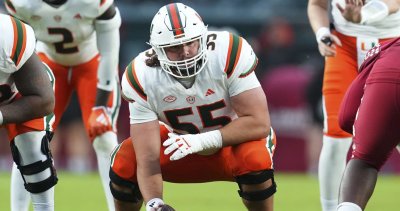
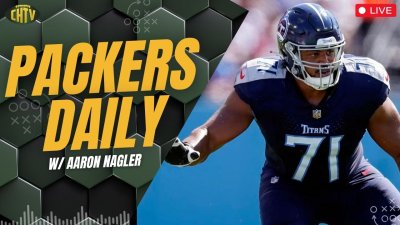
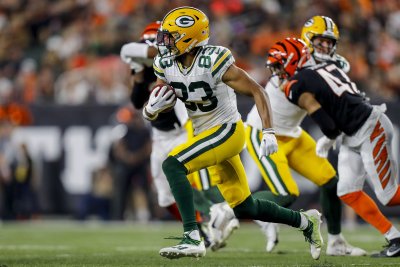
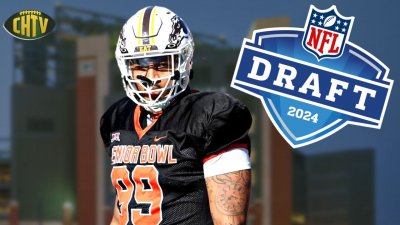


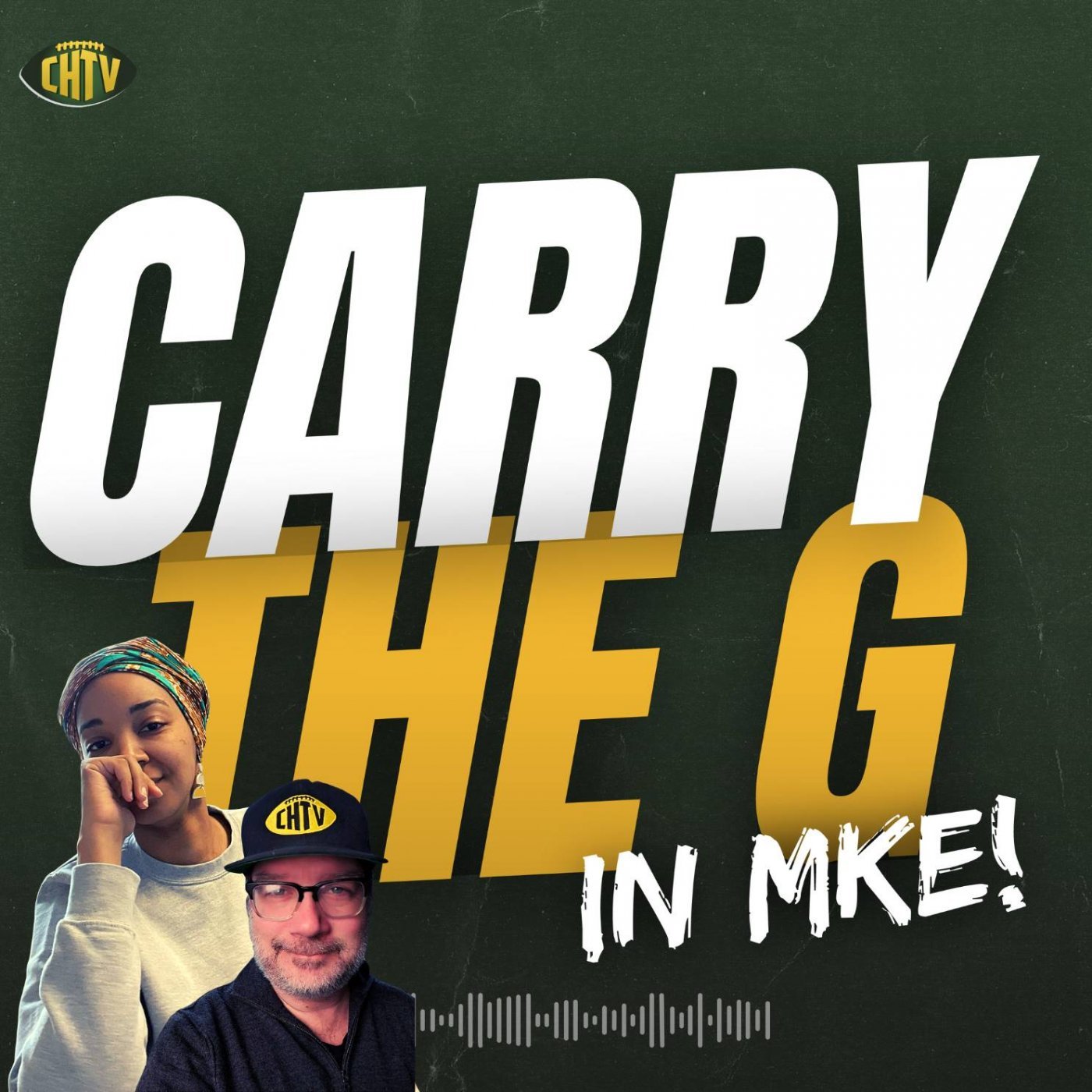



Comments (16)
HankScorpio
June 08, 2018 at 05:42 pm
I heard tiny violins for how bad NFL players got it after 2-3 paragraphs. If that was autoplay code built in to the website, it was a nice touch. But it might have been just me.
As a fan, I have a hard time caring which player is making millions. To me, this isn't about player v owner. I care even less about that.
Teams are going to spend to their budget whether they are wasting money on overpaid players or getting good value for every cap dollar spent. The former makes for a bad product on the field. The latter makes for a better one. I'd rather see the better product.
I like that the Packers can cut turds that phone it in after cashing in. I hate that the Brewers can't dump that juicer Braun.
TheVOR
June 08, 2018 at 06:14 pm
I'm with you. Ya, OK, they're far behind other sports, BUUUUUTTTTT,
There are 22 "STARTERS" on a football team. To start Guaranteeing Money to masses of football players is a pipe dream. A huge bust out strike will be unavoidable in the next CBA, because the owners aren't going to give away the franchise to the players, it's just never going to happen.
In fact I'll go as far as to say the teams might just redraft a new NFL, and let the players do what they must. Also, in the NFL, there aren't a small handful of players that are deserving of all that guaranteed money anyway. The ones that deserve it will get it. Rodgers is one of them. Matt Ryan?
Thegreatreynoldo
June 08, 2018 at 07:16 pm
I suspect that guaranteed contracts would not work the way most think it would. What is scary is the author's suggestion of giving players more freedom of movement between franchises and even toying with the notion of abolishing the draft and letting players decide for whom they will play from the get-go.
That probably does not bode well for a franchise like Green Bay.
4thand1
June 08, 2018 at 07:25 pm
The NFL is making a fortune on the draft, I don't see them giving it up TGR.
WKUPackFan
June 09, 2018 at 03:46 am
Obviously abolishing the draft would constitute a paradigm shift for the NFL. That subject is worthy of a separate debate.
While awaiting that debate, consider the situations of Baker Mayfield and Sam Darnold. Two extremely talented QBs who many teams would have been interested in. However, the draft eliminated any possibility that Mayfield and Darnold could maximize their positions, or (gasp) be allowed to sign with the teams of their choice.
We hear complaints that players should have to "live in the real world". In that real world must of us are free to work and live in the places we desire.
Thegreatreynoldo
June 09, 2018 at 09:16 am
I agree, WKU. The NFL's refusal to allow 18-year olds to play in the NFL is also just its way of protecting the NFL's free minor league system: college football. The NCAA's requirement that a student-athlete sit out a year is another dubious restraint on a person's freedom to move. Even non-compete clauses in the "real world" by law must have reasonable time and geographical limitations. Yet all major Professional Sports Leagues in the US have a draft.
cheezit
June 09, 2018 at 01:38 pm
> We hear complaints that players should have to "live in the real world". In that real world must of us are free to work and live in the places we desire.
It's unreasonable to compare a normal at-will employment contract with a sports contract which penalizes either side for ending the contract early to a greater or lesser extent. So when my employer is on the hook for a substantial amount of dead money if I get fired for under-performance, then we can start talking about freedom of movement.
Thegreatreynoldo
June 10, 2018 at 04:07 am
That's a point well taken, Cheezit. But remember, NFL rookies aren't allowed to enter into a normal employment at will arrangement. Veterans can, but by then it probably makes more sense not to, since their salaries are market based. Rookies have their salaries artificially depressed by the CBA, at least for rookies drafted day one and two, anyway, with the connivance of the veteran players in the Union.
4thand1
June 08, 2018 at 07:22 pm
I heard them talking on the NFL network a while back about a separate pay scale for QB's that won't count against the regular team cap. It would have to be worked out in the CBA in 2020.
Since'61
June 09, 2018 at 08:56 am
First of all the NFL had their watershed free agent moment when Reggie White signed the first free agent contract when he signed with Green Bay back in 1993. The author has apparently never heard of Reggie White or the impact his signing had on the rest of the league and on the Packers of course. His signing with Green Bay made coming to Green Bay creditable option for FAs ever since.
Also, I believe that the Reggie White signing remains the best Free Agent signing of all time.
This issue began with Curt Flood of MLBs St. Louis Cardinals in 1969. He refused to accept a trade and sued MLB for $1 million for violating anti-trust laws via the existing reserve clause. Flood's legal efforts failed but in 1974 the Oakland As failed to pay a contracted bonus to Jim "Catfish" Hunter and he sued and won not only the bonus owed to him but the right to become a free agents due to Oakland's breach of contract. He became sports first free agent, signed with the NY Yankees and the rest is history. The trade off has been the draft process in all sports and the requirement for players to remain with the team which drafts them for a minimum number of seasons.
True player empowerment would mean that players can sign with any team once they turn 18 years old. Now this happens in MLB and the NHL but those players usually remain in the minor leagues for a few seasons at least. The NBA has signed players out of High School, i.e., Lebron James. The NFL does not have a "minor league" system other than the college ranks. To sign 18 year olds to the NFL would probably create chaotic bidding wars (ala NFL/AFL pre 1966) and even more injuries than we see today.
As for current player empowerment, how much of their empowerment do the players give away to their agents? Also, I don't believe that teams expect their players to remain loyal to their teams, why should they? The teams are not loyal to their players and they certainly don't care about their fans, who are the customers.
As of now I am expecting a major work stoppage with the next CBA. I think the owners are going to try to put a check on the escalating salaries, I think they are going to push hard for an 18 game schedule. The players are going to push hard for more safety and longer term health benefits and the kneeling/protest issue may still need to be dealt with. The list goes on and on for both sides and I'm concerned that it will be long and bitter even to the point of affecting the league's viability. But at least it's 3 seasons away.
As for Aaron's new contract it will be the largest in NFL history and it may include some features that we haven't seen before but I don't think it will include an opt out unless it is a mutual opt out after a minimum number of seasons. We'll see. Thanks, Since '61
croatpackfan
June 09, 2018 at 03:58 am
Since, I think the nature of opt-out option makes that unilateral, so there is no mutual opt-out. You can always agree on stoping or ending any contract if there is mutual interest for it. You do not need opt-out clause...
Since'61
June 09, 2018 at 08:46 am
Croat - strictly speaking you are correct. Yes, the Packers could release Rodgers at any time but they would be on the hook for whatever "dead money" remains against their salary cap at the time. On the other hand Rodgers could "retire" at any time. However, if Rodgers signs a 5 year contract and decides he wants to leave(retire) after 3 seasons the Packers would retain the "rights" to him and Rodgers would not be free to sign with another team.
We went through this during the Brett Favre scenario. He retired while still under contract with the Packers and then unretired, which resulted in the Packers trading him to the NY Jets. Favre was not free to "retire" and sign with another team at that point, which he would have been with an opt out clause.
A mutual opt clause would mean that Rodgers could "opt out" of an existing contract and become a Free Agent at that point or the Packers could "opt out" of paying him $30+ million APY and Rodgers would be free to sign with another team.
It's all a matter of how the contract is written as to whether Rodgers could become an FA and/or how much guaranteed money the Packers would be on the hook for.
Again, to me this all means that the Packers should get this done ASAP. If the Packers go through the 2018 season without extending Rodgers and Rodgers has an MVP and/or SB winning season, advantage Rodgers and big time CHA CHING!!! for him, opt out clause or not. Thanks, Since '61
WKUPackFan
June 09, 2018 at 03:04 am
Outstanding article Matt. I especially like these two statements: 1) "Perhaps the biggest con pulled off by NFL ownership is convincing fans that star players should take less money to aid the team" ; and 2) it's unethical to restrict a player's negotiating power, either explicitly or through subtle manipulation".
As a Packers fan, I do not want the team or the league treating the players like robots. I appreciate the years of work and dedication the players have put in to hone their craft. Considering the short lifespan of the average NFL career, and the possibility of a career ending injury on each play, I'm all for every player getting the maximum amount of money they can while they can.
In addition, it would give me great pleasure to see the "all players are dumb, have been coddled all their lives, etc." crowd have a fit over the players obtaining more freedom.
Michael Hughes
June 09, 2018 at 03:46 am
Surely guaranteed contracts just means smaller contracts as teams will be less likely to risk so much on a player who could bust.
Also player A making more means player B making less ....
Thegreatreynoldo
June 09, 2018 at 10:45 am
The increases in revenue for most professional sports have been dramatic in the last few years. Yet I don't think it has been caused by an improvement in the quality of the product on the field or court, or by FA, or empowering player movement.
The NFL had revenue of $4.28B in 2001, which grew to $9.58B 13 years later, a 124% increase. That works out to 6.4% compounded annually. That is healthy but not astounding. From 20013 to 2016, the NFL's revenue increased from $9.58B to $13.16B, or an 11.2% annual increase.
The NBA had revenue of $2.66B in 2001 which grew to $3.68B in 2011, which would be just an increase of 38% over 10 years, a 3.29% increase compounded annually. It has doubled in the last 5 years to $7.37B, a 14.9% annual increase. The Knicks enjoyed revenue of $426M while the Bucks were last with $179M
MLB had revenue of $3.58B in 2001, and 10 years later it was $6.36B, about 5.91% annual growth. Revenue reached $9.46B in 2017, six years later. about a 6.84% annual increase. MLB has seen 6.37% growth in revenue over the last 3 years. The average age of a person who viewed MLB is 53; it is 47 for the NFL and 37 for the NBA. 50% of MLB's viewers are over 55 years old, up from 41% in 2007. Playing baseball has declined from 9M in 2002 to 5.3M in 2017 among those aged 7 to 17. Baseball looks to be the sick man of pro sports.
Football might have some of the same issues baseball has in terms of the age of its audience. Right now, networks are willing to pay huge amounts to broadcast football and sports in general, which in my opinion is because sports is something fans tend to watch live, and thus are subjected to commercials.
Do people watch sports (other than Olympic ones) that they never played? [This is the concussion issue: I suppose folks watch MMA and boxing even if they never participated in those sports.] Would guaranteed contracts affect revenue? Would increased mobility of veteran players affect revenue? If the draft were abolished, could the NFL figure out a way to replace the lost revenue from the televised draft? If there were effects, would they be even across the various teams in the league?
cheezit
June 09, 2018 at 01:42 pm
I sure would love if football had the same finals matchup four years in a row like the NBA has - we should copy their stars-and-scrubs structure, pronto! And also take in half the revenue for five times as many games played per year, like the NBA does. Great idea.
Incidentally, if you think it's unethical to restrict a player's negotiation power as you asserted without evidence or argument in the article, you should be against player contracts in general, and any form of collective bargaining agreement, and the salary cap (which would be the end of an NFL team in Green Bay, though that's neither here nor there).